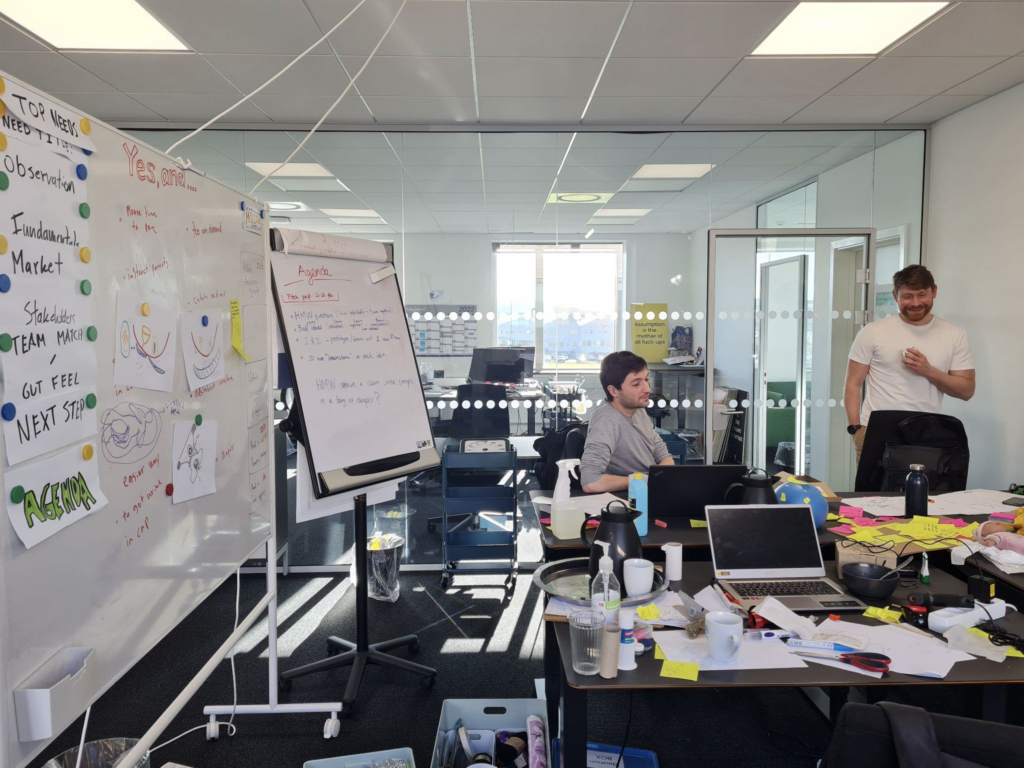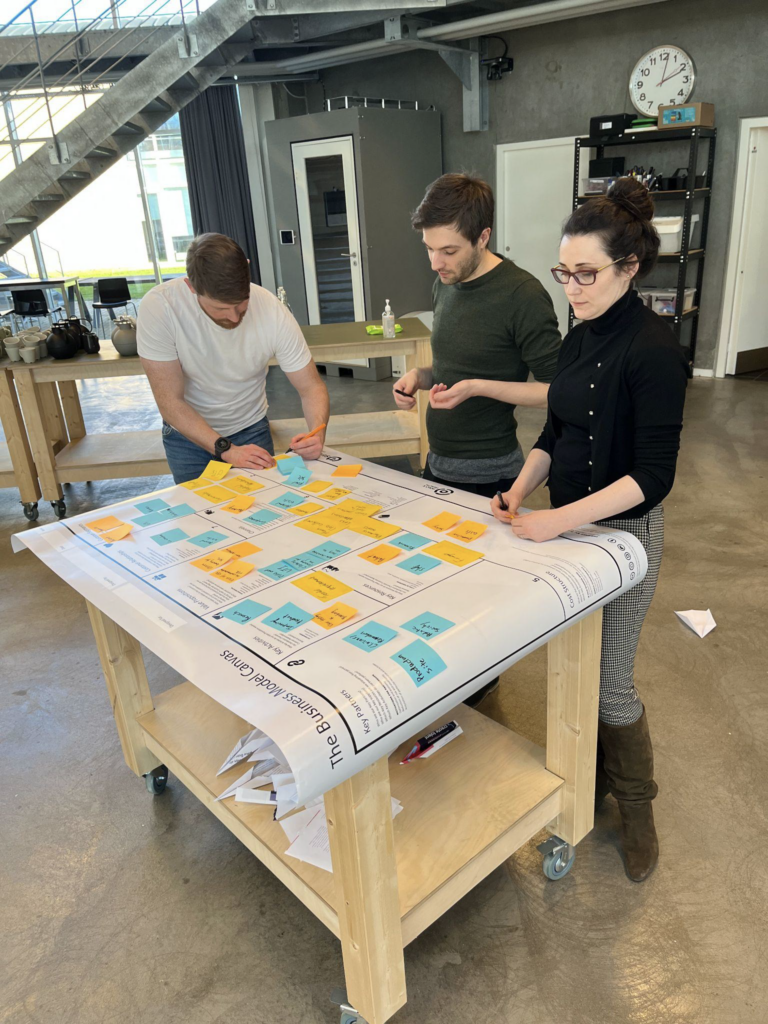
5 years wiser in only 10 months!
The BioMedical Design Programme (BMD) is an intense 10-month experience loaded with tons of
invaluable learnings. Here are some of the reasons we, Team Inventricle, think we got 5 years wiser in 10 months.

Facilitator of the week
Since interdisciplinary teamwork is a cornerstone of the BMD programme, there was a lot of
excitement leading up to the team announcement and team building seminar. We were lucky to
be placed in a very diverse team, with both engineers, doctors and a nurse. At the seminar we
were introduced to the phases you have to go through to become a high performing team –
Forming, Storming, Norming and Performing. Like most other teams we also had to go through
these and it wasn’t always easy. But we learned a lot about each other and our team dynamics
along the way. One thing that we implemented was to have a “facilitator of the week”. That made
sure that everyone had the opportunity to plan and direct the team in the tasks at hand, and we
learned that our team worked a lot better when someone explicitly took the role of facilitator.
Get out of the building

Working with MedTech innovation you have to leave the office space. No matter if it’s about validating needs, ideating concepts, or testing prototypes, getting out of the building is an essential activity to master. It’s almost a philosophy or way of working that will influence most activities and make sure you don’t base decisions on assumptions. However, you have to be smart about how you talk to patients and clinicians as they can easily lead you down the wrong path if you don’t phrase your questions the right way. To do this right, we found “The Mom Test” by Rob Fitzpatrick to be a fantastic resource.
See one, do one, and raise the bar
During the programme, a general learning concept is the “See one, do one” concept. Monday
could be filled with inspiring teaching from domain experts, and then the rest of the week is for
you to go out and try what you’ve learned in your specific project. This is an excellent way to
make knowledge stick with long term memory. In addition, outcomes are frequently shared
between the teams to inspire each other. A sense of healthy competition among the teams
helped us all raise the bar for what can be done, like going across the planet to validate a need or
meet with key opinion leaders.
You make your own calls
On paper, the creative skills phase is about how to generate ideas. The tools to facilitate this are thoroughly taught, but our favourite takeaway from this phase is the mentality of being our own autonomous design team. No matter the tool, it’s our responsibility to stay agile and modify those tools to best test our hypotheses.
Never too late to pivot
During our time at the programme we have heard many tales of all the amazing pivots that have
happened in the previous cohorts. Luckily, we got to try one ourselves as well, and hopefully it will
be added to the list that the future fellows will hear about.
We only had about 6 weeks left before the final pitch when we decided to pivot and focus on
children with urinary incontinence instead of collection of urine samples, so we had a lot to do in
a very short time. But we learned that this time we could really divide and conquer because we
had learned so much the first time around. It made it a really fun and exciting experience to try
and get as much as possible done in such a short time. We managed to talk to a lot of
stakeholders and interview several parents and children in both Denmark and the USA. We even
did a Facebook campaign to understand more about our potential customers and the willingness
to pay.
Pitching
All of this led us to the culmination of the programme, which was the final pitch. All through the
programme we have been training our pitching skills both formally and informally. This is such a
valuable skill no matter what you do – to be able to clearly communicate a need and idea to
anyone no matter what their background is, and in a way that they will remember it afterwards.
So, what now?
At the moment we are wrapping up our project and our time at the programme. No one from the team is continuing on with the project as of now. Instead, we are handing over the IP and all of our knowledge in this area to the BMD programme. We do this because we want to share what we have learned and so the project can continue to live on if any students or future fellows want to continue some of the processes that we started.
We are excited about our future. Frederik and Christian already landed jobs at Duckwise and Trifork respectively, and will continue a journey within Digital Health. Gulcin and Nanna are still looking for the right match workwise. Nanna is looking for a job where she can combine her nursing background with all the new skills she got as a Biomedical Designer.